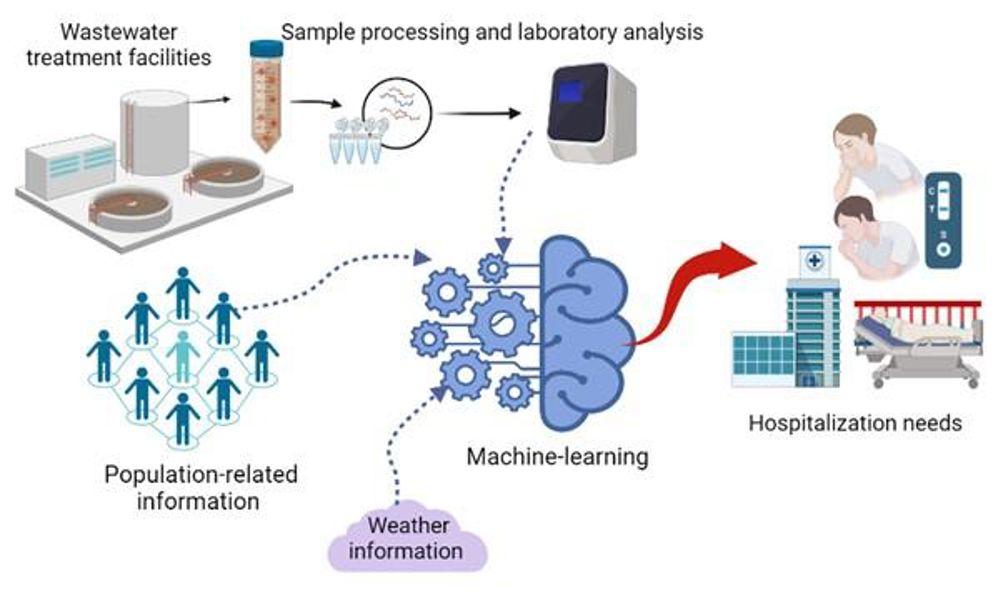Despite the epidemiological nature of the work, the study was led by two engineers from the University of Technology Sydney (UTS) - Professor Qilin Wang and Dr Xuan Li. Working alongside colleagues from UNSW Sydney, Delft University of Technology and Morgan State University, Wang and Li examined wastewater data from 159 counties in the US, covering nearly 100 million Americans. They then cross referenced this data with US hospital admission records to develop their prediction model. The work is published in Nature Communications.

“My PhD focused on sewer design to reduce concrete corrosion, however I graduated right around the time of COVID-19 and saw an opportunity to monitor and study the pandemic,” said Dr Li.
“Current prediction methods are based on COVID-19 laboratory testing, or self-testing and reporting, however this does not pick up asymptomatic cases, and many countries are moving away from rigorous testing requirements.”
According to Professor Wang, wastewater is a rich source of data that is not yet fully exploited. He believes AI-based modelling can be a cost-effective early warning system, allowing public health officials to better prepare for and manage pandemic waves, and efficiently allocate limited healthcare resources.
Related content
“Wastewater monitoring is already conducted in many countries, but it is limited to showing whether COVID-19 is present in a region, as well as a rough estimation of whether the burden is increasing or decreasing,” he said. “We used artificial intelligence to pick up patterns and changes in the data and learn from this to increase the accuracy of predictions.
“Variables that can influence hospital admissions include changing behaviour due to public policies, vaccination rates, holidays and weather. The established model can help accurately predict the hospitalisation needs due to COVID-19 in the region.”
Dr Li said the team’s work could form the basis for an early tracking system for Covid and a range of other diseases, as well as predicting the degree to which pandemics and outbreaks will impact local populations.
“I’m grateful for the opportunity…to explore the potential to create early-warning systems for COVID-19 and other diseases,” she said. “I hope this work can benefit the community and inspire other women in science.”
The study was supported by the Australian Research Council and the Australian Academy of Science.











Microplastics evading capture in wastewater treatment
Can anyone provide a link to a credible peer-reviewed study demonstrating toxicity from microplastics? This report uses words like ´potential´ and...